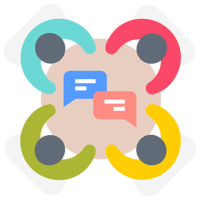Active Listening Training Sydney
Active Listening Training Sydney
You know that feeling when you're in a meeting and someone's talking, but you're already thinking about your response, checking your phone, or mentally going through your to-do list? We've all been there. The thing is, when we're not really listening, we miss critical information, make assumptions, and often end up having to ask people to repeat themselves. It's frustrating for everyone involved, and it shows.
Here's the reality: most of us think we're good listeners, but we're actually pretty average at it. Real listening isn't just about hearing words – it's about understanding what people mean, picking up on what they're not saying, and making others feel heard and valued. In today's workplace, where so much communication happens via quick emails and rushed conversations, the ability to truly listen has become a superpower.
This isn't about sitting there nodding your head while someone talks. Active listening is a skill that can transform your relationships at work, help you avoid misunderstandings, and make you the kind of person others actually want to talk to. You'll learn how to read between the lines, ask questions that get to the heart of issues, and respond in ways that show you genuinely understand what's being shared.
The techniques we cover work whether you're dealing with an upset customer, trying to understand a colleague's concerns, or having a difficult conversation with your boss. You'll discover how your body language either encourages or shuts down communication, and why sometimes the most powerful thing you can do is simply pause and reflect back what you've heard.
What You'll Learn:
How to quiet that internal voice that's always preparing your next response so you can focus on what's actually being said. You'll practice techniques for staying present in conversations, even when they're about topics you find boring or stressful.
The difference between hearing and listening, and why most workplace conflicts stem from people feeling unheard rather than disagreeing about facts. We'll explore how to validate someone's feelings without necessarily agreeing with their position.
Body language basics that either invite open communication or signal that you're checked out. You'll learn how small changes in your posture, eye contact, and facial expressions can dramatically improve how others respond to you.
Questioning techniques that help you understand the real issue behind someone's words. Sometimes what people say on the surface isn't what they're actually concerned about, and you'll learn how to gently probe for the underlying concerns.
How to handle emotional conversations without getting defensive or trying to immediately solve every problem. This is especially useful when dealing with complaints, feedback, or when someone's just having a tough day.
Practical strategies for active listening training in different workplace situations - from one-on-one meetings to group discussions where multiple people are talking.
The Bottom Line:
When you truly listen to people, they notice. They're more likely to share important information with you, trust you with sensitive issues, and see you as someone worth collaborating with. This training gives you practical tools you can use immediately to become the kind of colleague, manager, or team member that others actually want to communicate with. It's not about perfection – it's about showing up more fully in your conversations and making others feel heard. That's something that benefits everyone and costs nothing but attention.
Plus, you'll find that when you really listen, you learn things you never would have picked up otherwise. People will tell you what's really going on, what they need to succeed, and what's getting in their way. That's valuable information that can help you work better together and avoid problems before they become bigger issues.
The skills we cover work in any industry and with any personality type. Whether you're naturally chatty or more reserved, whether you work with data or people, these techniques will help you build stronger management core relationships and get better results through improved communication.
